Kitchen Cleaning Lifehacks Everyone Should Know
For some people, cleaning the kitchen is a dreadful task. With the right kitchen cleaning lifehacks, however, the process can be quicker, easier, and more efficient.
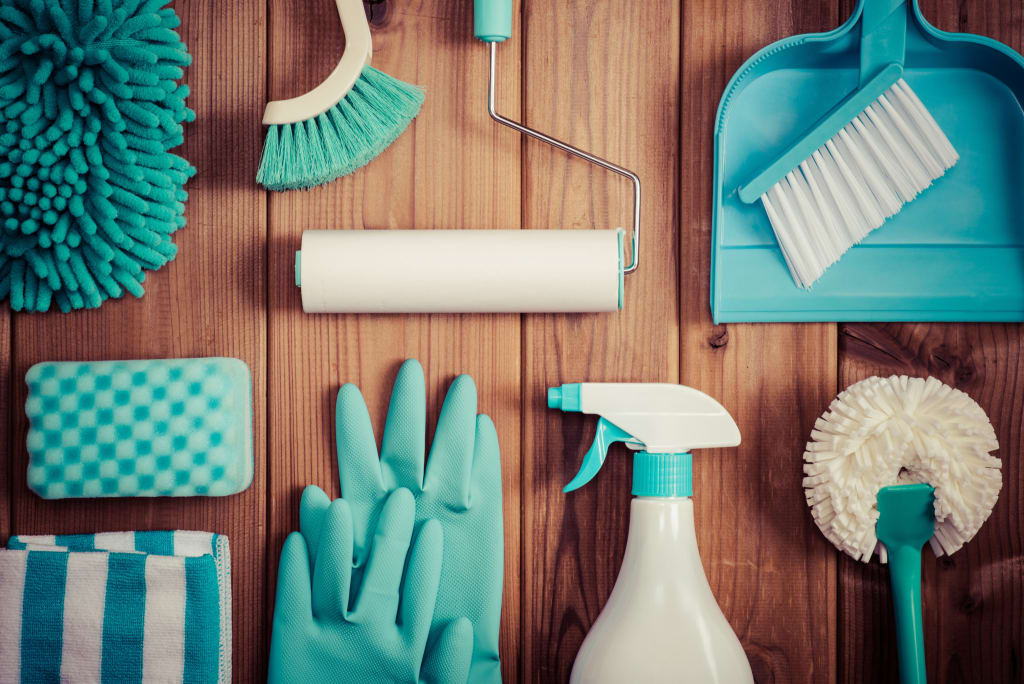
Among household tasks, kitchen cleaning ranks as the least frequent activity men engage in and the third least frequent activity women partake in. What is more, men and women only spend an average of 4 and 13 minutes a day cleaning the kitchen respectively.
It is reasonable to predict, then, that cleaning dishes, wiping off countertops, and sweeping and mopping kitchen floors can be the most daunting of tasks. Perhaps this is because the kitchen tends to get the dirtiest the quickest. There are also a lot of expensive tools and appliances to maintain.
Fortunately, keeping the kitchen neat and tidy doesn't have to be one of the most hateful household duties. There are many kitchen cleaning lifehacks you can turn to, to ensure things stay cleaner longer and kitchen equipment lasts the longest.
Sanitize your wooded cutting boards with baking soda and lemon.
Wooded cutting boards can be expensive, and thus, should be a priority to maintain. However, it is strongly recommended that wooden cutting boards are not submerged in water, nor placed in the dishwasher. Doing so can cause your board to split, crack, splinter, or distort.
While there are many ways one can wipe off and sanitize their wooden cutting boards, using baking soda and lemon is one of the best ways to keep them clean, stain-free, and not to mention, smelling fresh.
As an alternative for baking soda, you can also use kosher salt. Either way, both baking soda and kosher salt are natural abrasives, helping to scrub any stuck-on food or stains. Due to the abrasiveness, however, refrain from scrubbing too hard when cleaning your boards when using these methods.
Place parchment paper or foil on baking sheets to avoid dirtying them when in use.
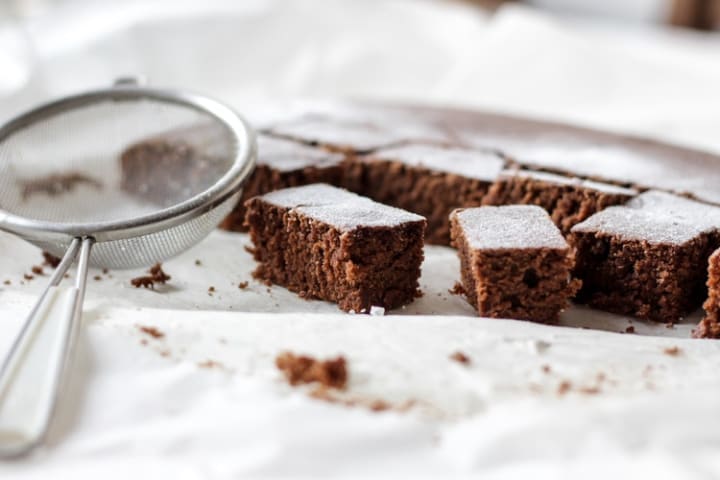
It may seem lazy, but placing parchment paper or tin foil on your baking sheets before popping food on top of your baking sheet is an excellent way to avoid having to clean extra dishes. After all, most baking sheets either have difficulty fitting in the dishwasher and can only be hand-washed, or take up a lot of space when drying.
As a result of trying this kitchen lifehack, your baking sheet will be food-free as the parchment or foil acts as a barrier between food and the sheet. Using parchment paper or foil on baking sheets also comes in handy when it comes to eliminating the need for using non-stick cooking spray.
You can also try this trick with slow cookers as both slow cookers and baking sheets alike are large, and in turn, frustrating when it comes to having to clean them. Simply use tin foil in your slow cooker in a bowl-like formation to keep things clean.
Deep clean your refrigerator inside and out with hydrogen peroxide.
From mustard drippings and splashed milk to unknown, sticky residues, the refrigerator can begin to smell and accumulate stains after a while. Apart from being deemed icky and ugly, a dirty refrigerator can be a health hazard, especially if there are leaked meat juices inside the fridge.
Fortunately, hydrogen peroxide deep cleans surfaces it comes in contact with without being too abrasive for the inside and outside of your refrigerator. It acts as both a bleaching agent and antiseptic. Best of all, it is non-toxic.
To clean your refrigerator with hydrogen peroxide, simply spray the outside with undiluted hydrogen peroxide. Once you get to the inside of the fridge, make sure to remove food prior to spraying the shelves and walls with the solution. Let it sit for a few minutes before wiping it clean.
Clean your garbage disposal with hot water, baking soda, and vinegar.
Every now and then, the garbage disposal can get clogged. As a result, it not only decline in its performance, but can also begin to give off an atrocious aroma. At that point, your garbage disposal is in dire need of a good cleaning.
One of the best ways to clean your smelly, clogged garbage disposal is by utilizing hot water, and baking soda and vinegar science. First, run hot water through your disposal for approximately one minute. Then add a half cup of baking soda, letting it sit for a minute, and add a cup of vinegar.
After adding the latter ingredients, cover your disposal with a drain plug. Let it sit for 10 to 15 minutes before removing the drain plug and rinsing it with a cup of hot water to finish it off. Ta da!
Polish stainless steel appliances with olive oil.
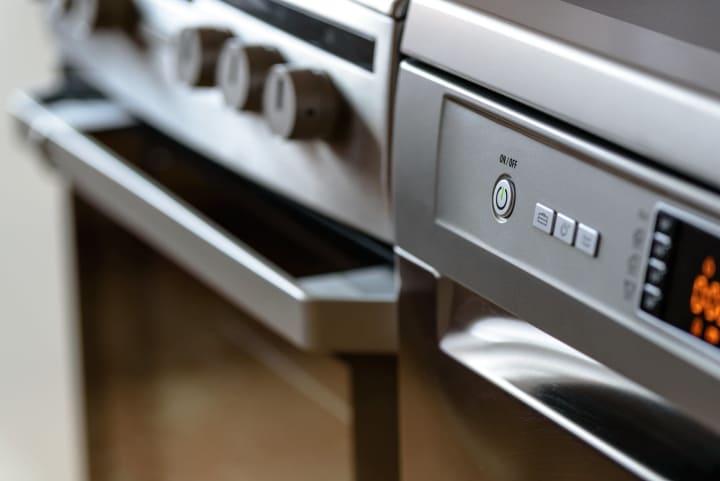
As much as many enjoy stainless steel appliances in their kitchen, food build-up and fingerprints are not uncommon. As expected, this can be unattractive and generally make our entire kitchen appear messier than it really is.
Keeping your stainless steel appliances spiffy, however, is a lot easier than it seems—and no, it does not involve soap and water. First, if you have any stains or build-up present on your appliances, spray white vinegar, let it sit for a few minutes, and then wipe away.
After ensuring your stainless steel appliances' exteriors are clean, now it's time to provide the finishing touches. Pour a drop of olive oil on a rag, and wipe down each of your appliances. Doing this can remove excess blemishes and add a shine to the surfaces of your machines.
Wash your dishes, or pop them in the dishwasher, as you dirty them.
Cleaning as you go is a common sense kitchen cleaning lifehack, but the thing is, it is common that household members let dirty dishes pile up as they seek to tackle the mess later. Perhaps you do this yourself when you're tired or just aren't in the mood for cleaning up.
While it is true that whether you clean up now or later, the mess will be the same, cleaning doesn't feel like cleaning when you break it up into pieces, tackling it as it comes. This way, you can eliminate the amount of time each day you spend consecutively cleaning the kitchen.
All and all, washing your dishes as they get dirty is both an important lifehack to consider, whether you are prepping a meal or just finished eating. Getting in the habit of even just rinsing off your plate and utensils can save you from a long scrubbing session later on when the food sticks.
Clean your blender instantly by blending water and dish soap together.
If you hardly use your blender because you find it frustrating having to take apart and clean the bulky pitcher after each use, there's a simpler way that doesn't involve hand-washing, nor dishwashing.
This kitchen lifehack simply consists of adding hot water and a single drop of your favorite dish soap to your blender and then turning on your device for a few seconds. This can freshen up the smell and remove stains from your blender quite effortlessly.
While this is a great lifehack that will cut your cleaning time in half, if you use your blender frequently or even wish to blend multiple items separately back-to-back, it is still important to thoroughly hand wash your blender's pitcher or pop it in the dishwasher.
Clean rust off of kitchen knives with hot water and lemon juice.
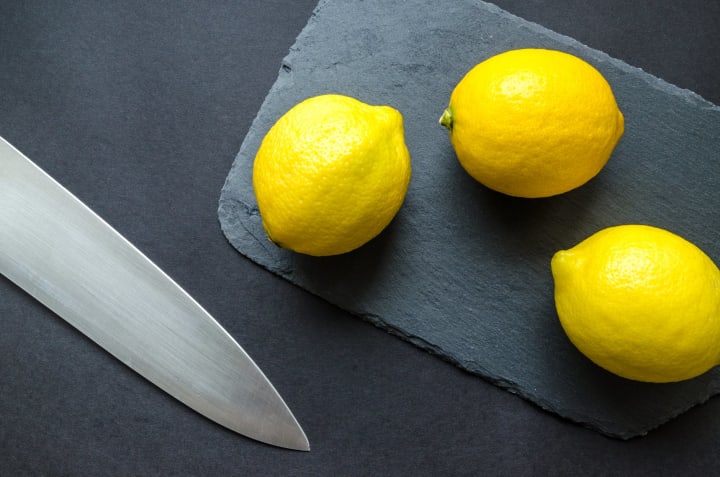
It's always a disappointment when one purchases a new kitchen knife set only to wash it one or a few times and already begin noticing signs of rust. On the bright side, using hot water and lemon juice may help tackle pesky rusting on your beautiful utensils.
Let's back things up a bit. First, know that kitchen knives should not be placed in the dishwasher if you want them to refrain from rusting for as long as possible. They should also be cleaned and wiped off shortly after use to eliminate any build-up or spotting.
Once you've got that down, now it's time to defeat pre-existing rusting and spotting on your knives. In a glass with warm water and lemon juice, place your knives blade-down, and soak for a few minutes. Rinse each knife after removal, pat them dry, and properly store as usual. If that doesn't work, there are many lifehacks for removing rust that you could try instead.
Soak reusable food containers in diluted lemon juice to remove food buildup and odor.
As much as many of us enjoy using plastic food containers to store leftovers and transport food to work or school, the smell that comes from these containers is undeniably disgusting at the end of the day. A quick tip for this is instead of cleaning your containers with soap and water, try lemon juice.
Lemon juice not only has a beautiful scent to freshen up the stench of food being broken down in your reusable containers, it can also kill bacteria, remove stains, and neutralize the pH within them. In turn, your containers will be less smelly when sitting in your kitchen sink and easier to clean later.
To enact this kitchen cleaning lifehack, simply squeeze a bit of lemon juice into your containers, and fill up the rest of your containers with warm water. Let it sit for about 10 minutes before rinsing. You can instead take half a lemon and rub it directly onto your containers before rinsing.
Double line your kitchen trashcan to make taking out the trash easier and faster.
One of the simplest kitchen cleaning lifehacks, but quite a convenient one, is double-lining your kitchen trashcan. This is particularly a great idea if you have a larger family, and thus have a lot of trash, or have a tinier kitchen trashcan that frequently needs to be dumped.
Double-lining your trashcan is a straight-forward process; don't just apply one trash bag, but two. When the first bag fills up, it's incredibly easy to take out the trash as you still have another bag already lining the trashcan. This is especially great during parties when the trash fills up quickly.
Just make sure to inform other members in your household that there are two bags on the trashcan to ensure they don't throw away both when they take out the trash. It would defeat the purpose!
Conclusion
Because the kitchen is a place for dealing with food, it is crucial that it stays clean and sanitary. This means both upkeeping and cleaning kitchen utensils and devices. Failing to do so could lead to rusty tools, dirty appliances, pest invasions, or even build-up of dangerous pathogens.
Not everyone enjoys tidying up the kitchen considering all there is to be maintained, scrubbed, swept, and wiped. However, with kitchen cleaning lifehacks, the process can be easier than you ever thought possible.
About the Creator
April Demarco
Proud mom of three chinchillas, hard core Justin Bieber fan, watches Unsolved Murders religiously



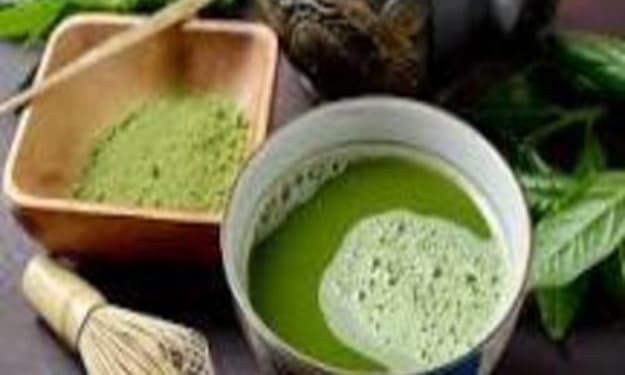


Comments
There are no comments for this story
Be the first to respond and start the conversation.